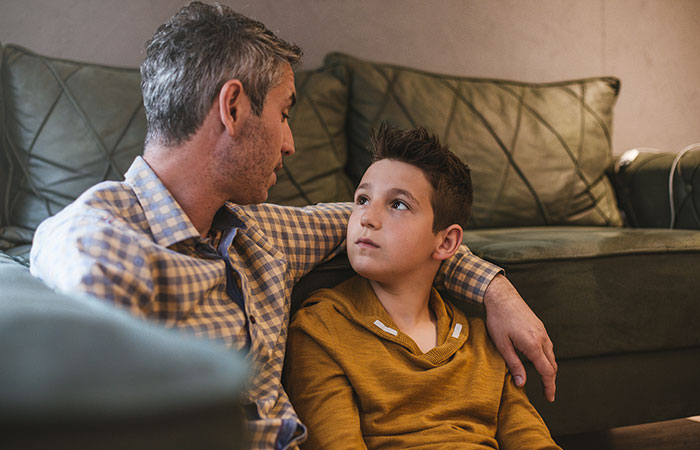
Parenting is a journey filled with challenges, joys, and countless learning opportunities. One of the most important aspects of this journey is gaining insight into your child’s perspective. Understanding how they see the world can profoundly influence your interactions and relationships, leading to a more harmonious and nurturing environment. In this article, we will explore the significance of seeing through your child’s eyes and provide practical tips to help you achieve this understanding.
As parents, we all want to know our children better. We want to understand their needs, desires, and motivations so that we can meet them on their terms. But how do we begin? How do we gain insights into our children’s perspectives? Understanding how they see the world can profoundly influence your interactions and relationships (leading to a more harmonious and nurturing environment), but it’s not always easy! It requires time and effort—but the payoff can be huge!
In this article we’ll provide practical tips for improving your understanding of your child’s perspective by asking yourself these questions: What does my child need from me? What does he/she value most from me? How do I best demonstrate those values?
Empathy as the Key
Empathy is the key to understanding your child.
As a parent, you’re constantly trying to figure out what’s going on in your child’s life and how to help them. But sometimes, it can be hard to know where to start. What if you don’t know what they’re going through? How do you help them if you can’t empathize with what they’re feeling? Empathy is the cornerstone of comprehending a child’s perspective. It involves stepping into their shoes, feeling what they feel, and seeing the world from their vantage point. By doing so, you open the door to deeper connections and more meaningful conversations with your child.
Recognizing Developmental Stages
There’s a reason why we call it “the terrible twos.” There are so many things that can go wrong during this phase of development. Your child is learning to use their imagination and independence in new ways—and they’re testing you at every turn.
It’s important that you don’t take any of your child’s behavior too personally. They don’t mean to make you angry or frustrated—they’re just trying out new behaviors and figuring out who they are! This is why it’s so important for them to have an adult who can provide guidance without getting upset or frustrated by their mistakes.
Encouraging Open Communication

As a parent, you want to be the person your child can turn to when they need help or advice. But how do you get there? First, understand that effective communication is a two-way street. Encourage your child to express themselves openly by asking open-ended questions and inviting them to share their thoughts, dreams, and fears. This fosters a sense of trust and empowers your child to confide in you.
For example, instead of asking “What did you do at school today?” ask “What did you learn today?” or “Who was your favorite teacher?” You’ll be surprised how much more information you get when you ask questions like these!
The next time you’re talking with your child about another adult in their life—a friend’s parent, a teacher—ask them open-ended questions like: “Why do you think she does that?” or “What do you think about what he did?” Try not to tell them what they should think or feel; instead let them share their own opinions and experiences with this person.
Interpreting Non-Verbal Cues
As a parent, one of the hardest things to do is figure out what your child wants. They’re not always able to articulate their feelings, and they don’t always have the vocabulary to explain what’s on their mind.
One of the best ways to understand what your child is thinking is by paying attention to their non-verbal cues – body language, facial expressions, and gestures. These silent expressions can speak volumes about their emotions and state of mind.
For example: if your child’s face looks sad and they’re hanging their head down, that could be an indication that they need some alone time or a hug. If they’re displaying an angry expression with crossed arms and clenched fists, it might be time to find out why they’re upset!
Validating Their Feelings
It’s natural for children to have feelings. It’s also natural for parents to have feelings about their child’s feelings. These feelings can be conflicting, and sometimes they can even conflict with each other! When it comes to your child’s emotions, this is when you need to step back and take a look at the situation from their perspective. Are they expressing themselves appropriately? Or could they benefit from some guidance in how best to communicate what they’re feeling?
It’s essential to validate your child’s feelings, no matter how big or small they may seem. Let them know that their emotions are valued and respected. This acknowledgment fosters a sense of security and trust, reinforcing the parent-child bond.
Respecting Individuality
Each child is a unique individual with their own personality, preferences, and strengths. Celebrate their individuality by providing opportunities for self-expression and autonomy. This encourages them to develop a strong sense of self and confidence in their abilities.
As children grow, they will begin to develop a sense of their place in the world. At this stage in development, it’s important that parents set boundaries and guidelines for behavior while still allowing children to feel they have some control over their lives.
Encourage children to play independently rather than supervising every activity from start to finish. When they do need help with something or if there is an emergency situation, make sure you are available but don’t hover over them at all times—this can be overwhelming for kids!
Considering Cultural and Environmental Influences

As parents, it’s easy to get caught up in the daily grind of things like homework and sports practices. And while these are important aspects of our children’s lives, we sometimes forget that there are many other factors that impact their development as well.
Culture and society have a profound impact on our children’s values and beliefs. Whether it’s the music they listen to or the news they consume, their environment can shape how they see themselves and others. It can even influence how they think about issues like race, gender, sexuality, religion, and politics.
So while you may not be able to control everything your kids see on TV or hear on the radio (or even what they choose to do with their time), by understanding the factors that influence them—and by being open-minded when it comes to what makes sense for your family—you’ll be better able to prepare them for life as adults in today’s world.
Reflecting on Your Own Experiences
Being a parent is one of the most difficult jobs we will ever have. It is also the most rewarding. To be able to watch your child grow up and learn new things, as well as seeing them make mistakes and grow because of it, is amazing.
Your own childhood experiences can serve as a valuable resource in understanding your child’s perspective. Recall how you felt in certain situations and use those memories to connect with your child’s emotions and experiences. For example, if you were bullied at school, think about how that made you feel. Did it make you angry? Did it hurt? Did it make you feel like no one cared about you? These feelings can help you understand what your child goes through when they are bullied or teased by other students at school.
By listening carefully to their stories, asking questions about their feelings, and reflecting on your own experiences as a child, you can better understand how they are feeling so that together we can find ways for them to feel better about themselves!
Understanding your child’s perspective is a dynamic and transformative aspect of parenting. It requires empathy, active listening, and a genuine interest in their world. By taking these steps, you not only strengthen your relationship with your child but also provide them with a solid foundation for their emotional and intellectual growth. Remember, every child is unique, so continue to adapt your approach to suit their individual needs and preferences. Together, you’ll navigate the journey of parenthood with grace and understanding.
RUCHI RATHOR Founder & CEO
Payomatix Technologies Pvt. Ltd.
FOUNDER AND INVESTOR | PAYMENTS PROCESSING EXPERT | MERCHANT ACCOUNT SOLUTIONS | WHITE LABELLED PAYMENT GATEWAY | Dreamer, Creator, Achiever, Constantly Evolving
Website Ruchi Rathor: https://ruchirathor.com
Website Healing Heart https://thehealingheart.me/
Instagram https://www.instagram.com/ruchirathor/
LinkedIn https://www.linkedin.com/in/ruchirathor12/
Facebook https://www.facebook.com/ruchi.rathor.magnificient
Tumblr https://www.tumblr.com/blog/ruchirathor-thehealingheart
Medium https://medium.com/@ruchirathor_23436









